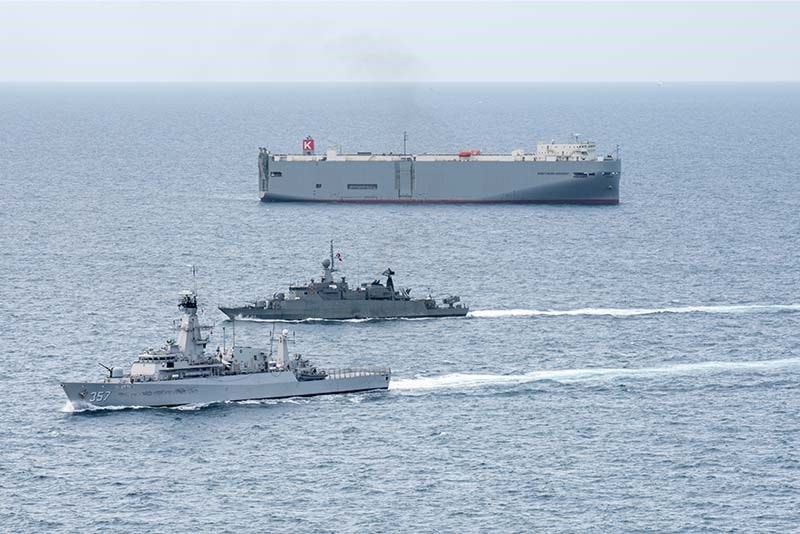Indonesia - Vessels Fined and Detained by the Indonesian Navy
The Club has noted an increased number of recent incidents regarding entered vessels being fined and detained due to illegally anchoring or drifting within Indonesian territorial waters. Therefore, we would like to remind Members of the precautions and their duty to notify local authorities.
Since the commencement of the Indonesian Navy's focused campaign in 2019, many vessels have been fined and detained off Bintan Island and around the Riau Archipelago due to illegally anchoring or drifting in their territorial waters without notifying local authorities of their intentions. However, before the fines and vessel detentions, the Indonesian Government indicated that the protection of the Indonesian Maritime Sovereignty was a vital issue, and they had already been detaining fishing vessels caught illegally fishing in their waters.
As per the United Nations Convention on the Law of the Sea, Chapter 3, Article 18, "Passage shall be continuous and expeditious. However, passage includes stopping and anchoring, but only in so far as the same are incidental to ordinary navigation or are rendered necessary by force majeure or distress or for the purpose of rendering assistance to persons, ships or aircraft in danger or distress".
When vessels are not transiting through the waters of the Indonesian Archipelago and plan on either anchoring or drifting, they must adhere to all local maritime laws of that country having jurisdiction over those territorial waters. Therefore, we recommend that the vessel's Master must review their planned anchorage/drifting position to determine which country has jurisdiction over those waters. Furthermore, they must contact the local authorities directly or using a local agent to advise of their intentions to be in Indonesian waters and seek permission.

Our local correspondent Spica has produced a circular – Indonesia: Vessel Detentions – regarding vessel fines and arrests in the Indonesian territorial waters and general advice on avoiding potential penalties and vessel detentions.
Members requiring further guidance or assistance should contact the Loss Prevention Department.